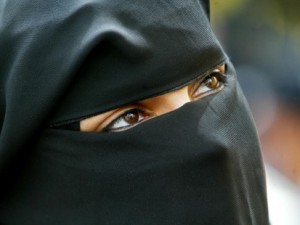should muslim women have to remove their burqas to be identified by police?
A new law has been introduced into Western Australia’s state parliament that would require Muslim women to remove their burqas or niqabs to prove their identity, if required. It would also apply to hats, scarves and other headwear or clothing that obstructs the ability to identify an individual.
The law was drafted in response to a case in 2010, where a Muslim woman falsely accused a police officer of forcibly removing her burqa, but was later acquitted of charges due to an inability to prove that it was in fact her who signed the false statement.
The new law raises once again the complex issue of the burqa, and its place in liberal, secular Australian society. As someone who was raised in a Muslim household, the issue of the hijab and the burqa is one that I have often felt conflicted about.
I absolutely support the right of a woman to wear cultural or religious garb – but the burqa is a garment that is problematic on numerous levels. The origin of the burqa is steeped in sexism – supposedly designed to protect a woman’s modesty from the sexualising male gaze, the burqa is a garment of control and domination.
However, it is simultaneously a symbol of a woman’s faith in Islam, and her commitment to both God and her religion more broadly.
I am wary of claiming the burqa is, and can only be, a tool for oppression and subjugation, because this negates the agency of women who choose to wear it on the basis of their own faith. That said, it’s equally problematic to not criticise the burqa for fear of appearing racist, or culturally insensitive, as it is important that we critically engage with aspects of other cultures that impede on the freedom of individuals, or that uphold sexist norms and values.
Whether or not you agree with the burqa in and of itself, the proposed law regarding in Western Australia is one that has to exist. Identification of individuals is an inherent and obvious aspect of law enforcement that is severely hindered by garments such as the burqa. And there are ways in which the removal of the burqa can be conducted, that won’t contradict the restrictions as stipulated in Islam. For example, Muslim women who need to be identified could remove their burqa for a female police officer, as women are not required to remain veiled in front of other women only.
As important as it is for people of diverse cultural backgrounds to be able to practise their cultures and religions freely in Australia, it is equally important that this occurs within the paradigm of Australian laws and systems.
I am deeply opposed to any suggestion of a ban on burqas entirely – but for the purposes of legal identification, I can not see any reasonable cause to reject this law.



As a Muslim in Australia I, and many muslims that I know, understand that we should abide by the law of the country we live in and that means adhering to the law if identification for security purposes.
Technically, for security purposes, women wearing the burqa are allowed to take it off and show their face if needed to be identified by the police. Unfortunately some people see it as ‘discrimination’ which is not the case at all. In Islam the burqa is not something that is obligatory to wear, some people just choose to wear it and they make such a fuss about it.
Clearly and efficiently summarised. I agree with your perspective. Thanks.
If the rest of us have to remove head wear by law, then yes they should.
Completely agree with you, Paola!
The burqa is, Islamic women`s way of revealing their cultural identity, beliefs, if they wish to wear them to still follow on there traditional clothing, they should be able to. Everyone has something they wear that reveals their cultural identity and beliefs. If we can our form of cultural identity here and in other countries then they should be able to as well.
But if security reasons come along to protect everyone else then they could wear the burqa when inside their homes and take it off when out in public, that way they can still live up to their traditions and beliefs.